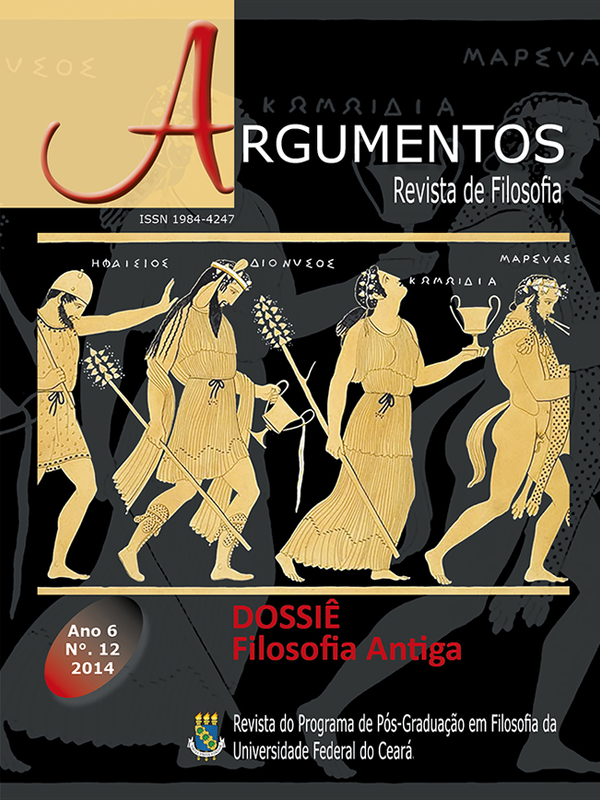The philosopher's image in Plato's Euthydemus
Keywords:
Philosophy. Eristic. Sophist. Socrates.Abstract
There is in the narrative contexto of Euthydemus the absence of a strict separation between philosophy anda eristic. The dialogue ends in a aporia that stages a misadventure of two friends, Socrates and Crito, before the inability to mark a border in that philosophy is crucial to the education of young people, at the expense of eristic. Despite constant insistence of Socrates, in his narrative, to delimit the need to exhort young people to the love of wisdom, a methodological confusion does not yet provide a separation between philosphy and eristic, in a way that they still appear to be the same activity. Accordingly, only through a behavioral distinction between sophist and philosopher is that the narrative can move toward this separation. Before that, the objective of this work is to show how the narrative of Socrates, in the Euthydemus, is an attempt to buid an image of the philosopher as different from the sophist, in order to mark the separation between philosophy and eristic.Downloads
Published
Issue
Section
License
Argumentos magazine is licensed under an International Creative Commons Attribution License.
The Magazine uses CC BY inclusion
1) The authors retain the copyright granted to the magazine or the right to initial publication, with the work regularly licensed under the Creative Commons Attribution, which allows the sharing of the work with acknowledgment of authorship and initial publication in this magazine.
2) The authors are authorized to contract additional applicable contracts, for non-exclusive distribution of the version of the work published in this journal (for example, publication in the institutional repository or as a chapter of the book), recognition of authorship and initial publication in this journal.
3) Authors are authorized and encourage to publish and distribute their work online (for example, in institutional repositories or on their personal pages) at any time before or during the editorial process, as they can generate productive changes, as well as increase the impact and reference of published work.




.jpg)










._._3.png)
1.jpg)
._._._.png)
